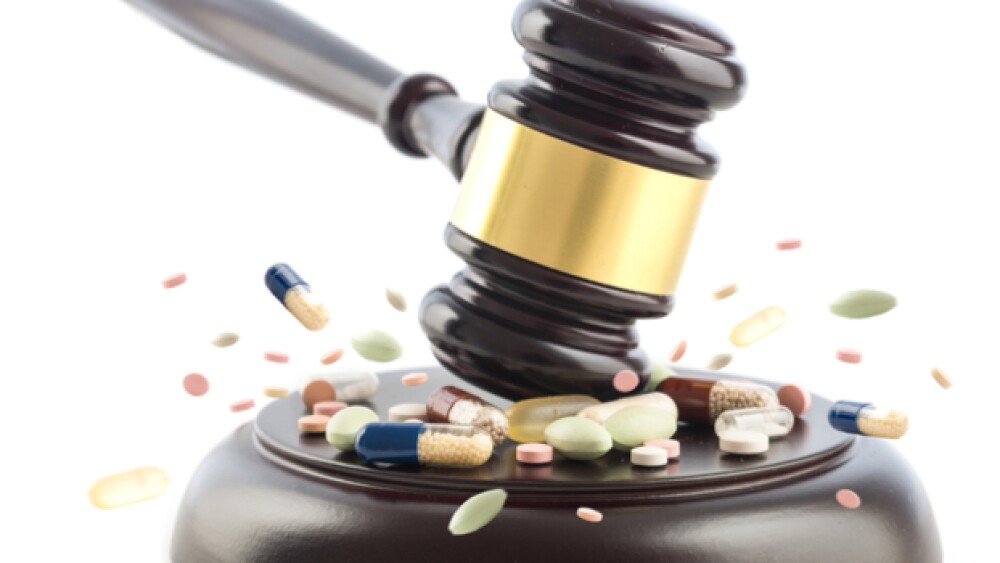The government charged the three companies with using charitable foundations they financially supported to finance copays of Medicare and Medicaid patients, which is a violation of law.
Three pharmaceutical companies, Jazz Pharmaceuticals, Lundbeck and Alexion Pharmaceuticals have agreed to pay fines totaling $122.6 million to the federal government to resolve kickback allegations.
The U.S. Department of Justice said the companies agreed to pay the fines over allegations they violated the federal False Claims Act by paying kickbacks to Medicare and Civilian Health and Medical Program (ChampVA) patients through charitable foundations that subsidized the co-pays with the financing from the pharma companies. The federal anti-kickback statutes prevent pharmaceutical companies from directly or indirectly paying for co-pays for medications covered by Medicare Part B or Part D or ChampVA.
“Pharmaceutical companies undercut a key safeguard against rising drug costs when they create assistance funds to serve as conduits for the companies to subsidize the copays of their own drugs,” said Assistant Attorney General Jody Hunt of the Department of Justice’s Civil Division. “These enforcement actions make clear that the government will hold accountable drug companies that directly or indirectly pay illegal kickbacks.”
The settlements came at a time when the pharmaceutical industry is facing increased scrutiny over the rising costs of its drugs. The three companies that settled with the government significantly raised the prices of the drugs covered by the public plans over the course of several years.
Jazz Pharma has agreed to pay $57 million to resolve the allegations against the company. According to the government in 2011, Jazz, which sells narcolepsy drug Xyrem and chronic pain treatment Prialt, worked with a foundation to develop a company-supported fund to cover copays for those drugs offered through the government programs. At the same time, Jazz increased the price of Xyrem at over 24 times the rate of overall inflation in the United States, the government said.
Last year, Jazz set aside funds in the first quarter of 2018 to cover the cost of this settlement.
Lundbeck, which Xenaxine, a treatment for chorea associated with Huntington’s disease, agreed to pay the government $52.6 million to settle the claims. Beginning in 2011 and continuing to 2016, the government noted that Lundbeck raised the price of Xenazine at over 22 times the rate of overall inflation in the United States.
The government said that both Jazz and Lundbeck entered five-year corporate integrity agreements as part of the settlement agreements. The agreements will require the companies to implement measures, controls and monitoring designed to promote independence from any patient assistance programs to which they donate, the government said.
Alexion agreed to pay the government $13 million to resolve the allegations against it. Alexion, which recently relocated to Boston, markets Soliris, which has a list price of about $500,000 per year. Because the cost of the medication is high, the company established a fund to support the patients with co-pays, the government said. The Department of Justice said the company remained diligent to notify the foundation to cease co-pay support if a patient switched from Soliris to another medication.
“We are committed to ensuring that pharmaceutical companies do not use third-party foundations to pay kickbacks masking the high prices those companies charge for their drugs,” said United States Attorney Andrew E. Lelling. “This misconduct is widespread, and enforcement will continue until pharmaceutical companies stop circumventing the anti-kickback laws to artificially bolster high drug prices, all at the expense of American taxpayers.”
Over the past few years, the government has been going after companies that engage in shady donations as part of a massive kickback investigation. In 2016 BioSpace highlighted allegations made in court that Celgene had donated millions of dollars to charities to help patients afford high-priced cancer drugs the company manufactures and markets. The government said it was a scheme to turn a profit of billions of dollars. In August 2017 Celgene agreed to pay $280 million to settle the allegations of fraud. In December 2017, United Therapeutics disclosed that it had set aside $210 million to cover the cost of a government probe into its support of similar charitable giving programs -- support that the government called a kickback.





